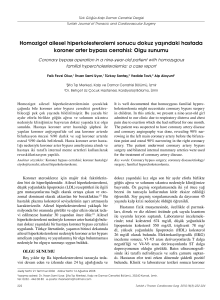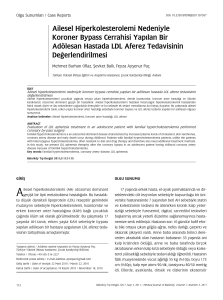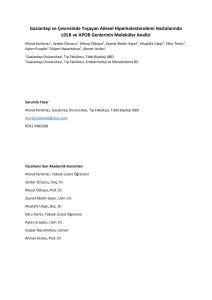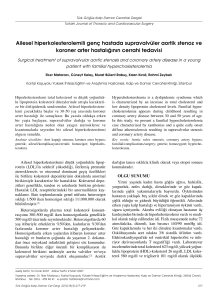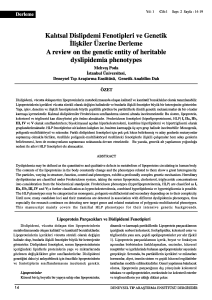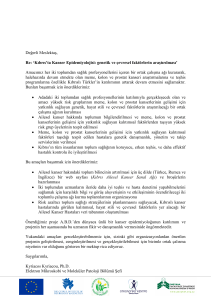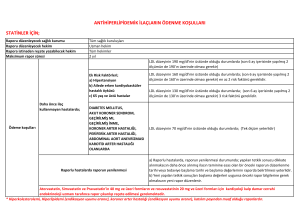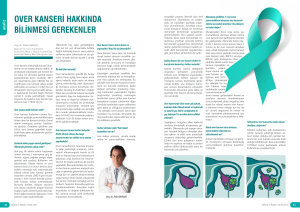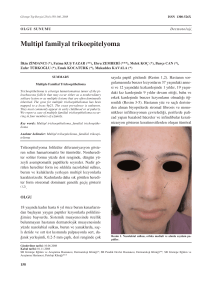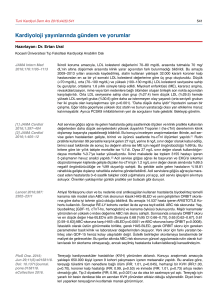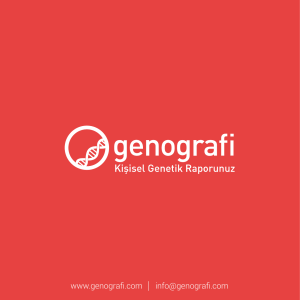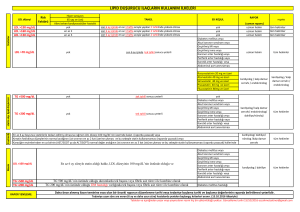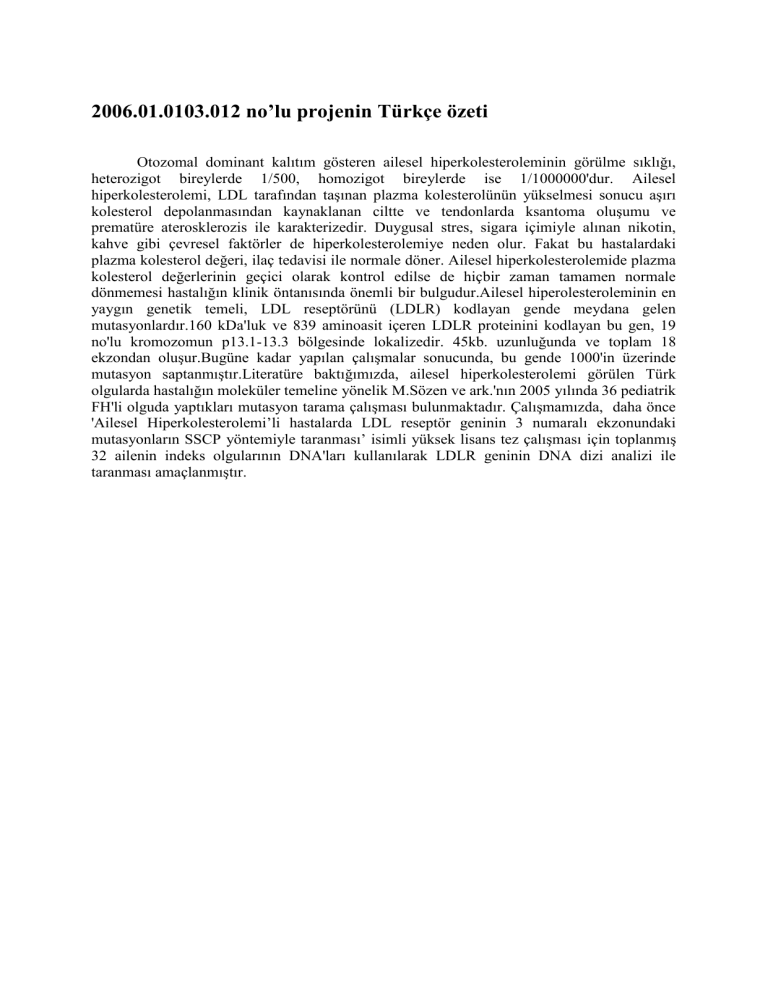
2006.01.0103.012 no’lu projenin Türkçe özeti
Otozomal dominant kalıtım gösteren ailesel hiperkolesteroleminin görülme sıklığı,
heterozigot bireylerde 1/500, homozigot bireylerde ise 1/1000000'dur. Ailesel
hiperkolesterolemi, LDL tarafından taşınan plazma kolesterolünün yükselmesi sonucu aşırı
kolesterol depolanmasından kaynaklanan ciltte ve tendonlarda ksantoma oluşumu ve
prematüre aterosklerozis ile karakterizedir. Duygusal stres, sigara içimiyle alınan nikotin,
kahve gibi çevresel faktörler de hiperkolesterolemiye neden olur. Fakat bu hastalardaki
plazma kolesterol değeri, ilaç tedavisi ile normale döner. Ailesel hiperkolesterolemide plazma
kolesterol değerlerinin geçici olarak kontrol edilse de hiçbir zaman tamamen normale
dönmemesi hastalığın klinik öntanısında önemli bir bulgudur.Ailesel hiperolesteroleminin en
yaygın genetik temeli, LDL reseptörünü (LDLR) kodlayan gende meydana gelen
mutasyonlardır.160 kDa'luk ve 839 aminoasit içeren LDLR proteinini kodlayan bu gen, 19
no'lu kromozomun p13.1-13.3 bölgesinde lokalizedir. 45kb. uzunluğunda ve toplam 18
ekzondan oluşur.Bugüne kadar yapılan çalışmalar sonucunda, bu gende 1000'in üzerinde
mutasyon saptanmıştır.Literatüre baktığımızda, ailesel hiperkolesterolemi görülen Türk
olgularda hastalığın moleküler temeline yönelik M.Sözen ve ark.'nın 2005 yılında 36 pediatrik
FH'li olguda yaptıkları mutasyon tarama çalışması bulunmaktadır. Çalışmamızda, daha önce
'Ailesel Hiperkolesterolemi’li hastalarda LDL reseptör geninin 3 numaralı ekzonundaki
mutasyonların SSCP yöntemiyle taranması’ isimli yüksek lisans tez çalışması için toplanmış
32 ailenin indeks olgularının DNA'ları kullanılarak LDLR geninin DNA dizi analizi ile
taranması amaçlanmıştır.
2006.01.0103.012 no’lu projenin İngilizce özeti
Familial hypercholesterolemia is inherited in autosomal dominant manner. The prevalance for
heterozygous is 1/500 and homozygous is 1/1000000. Familial hypercholesterolemia is characterized by marked
elevation of serum LDL-cholesterol levels, deposit of cholesterol in several tissues and premature coronary heart
disease.Also the environmental factors such as emotional stress, smoke and cafein cause the
hypercholesterolemia.In these cases, the level of cholesterol decreases by drug therapy. But in familial
hypercholesterolemia, the level of cholesterol controls by drug therapy permenatly.This is the the most important
clinical symptoms of familial hypercholesterolemia. The main causes of familial hypercholesterolemia are
associated with mutations in tle LDLR gene. This gene located on 19p13.1-13.3 encoding LDLR protein that
spans 45 kb and contains 18 exons.Until now, over 1000 mutations have been described in this gene. In the
literature, there is only one research regarding 36 pediatric Turkish FH patients which is published by M.Sözen
and et al. in 2005. In our research, we aimed that mutation screening of LDLR gene in 32 FH patients whose
blood taken before for another research named ' Mutation screening of exon 3 of LDLR gene in patients with
familial hypercholesterolemia by SSCP' by DNA sequencing.

